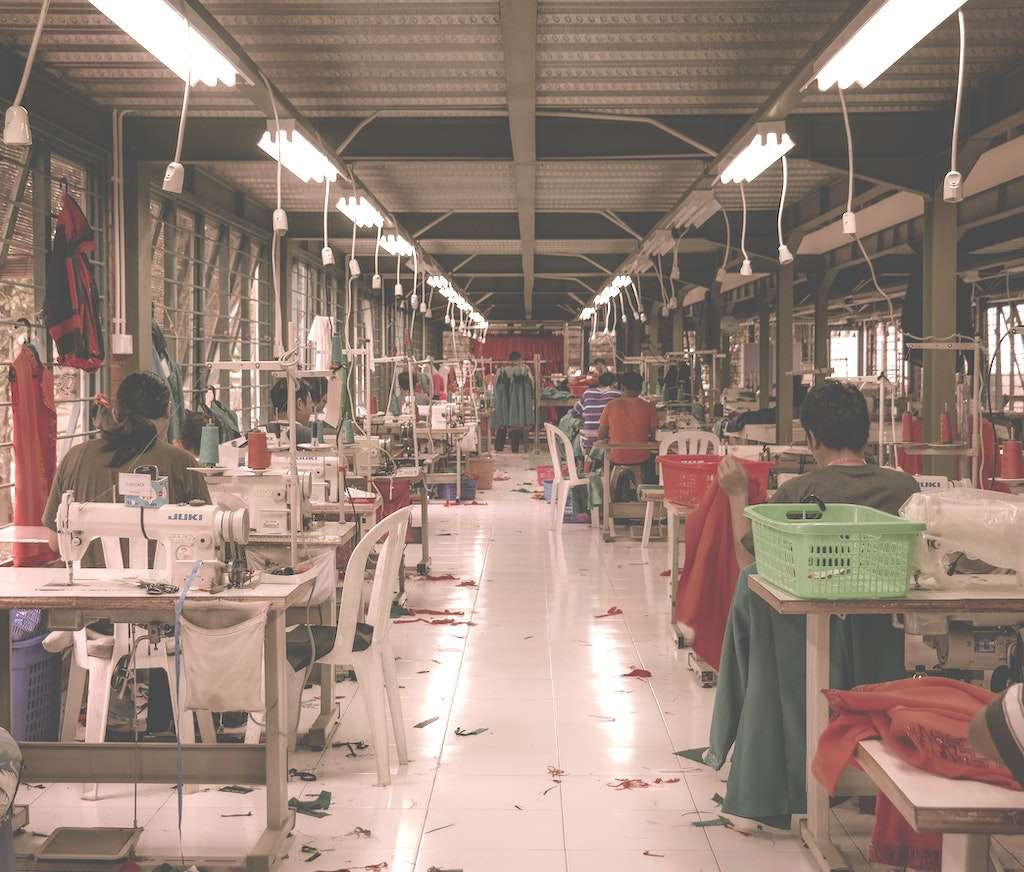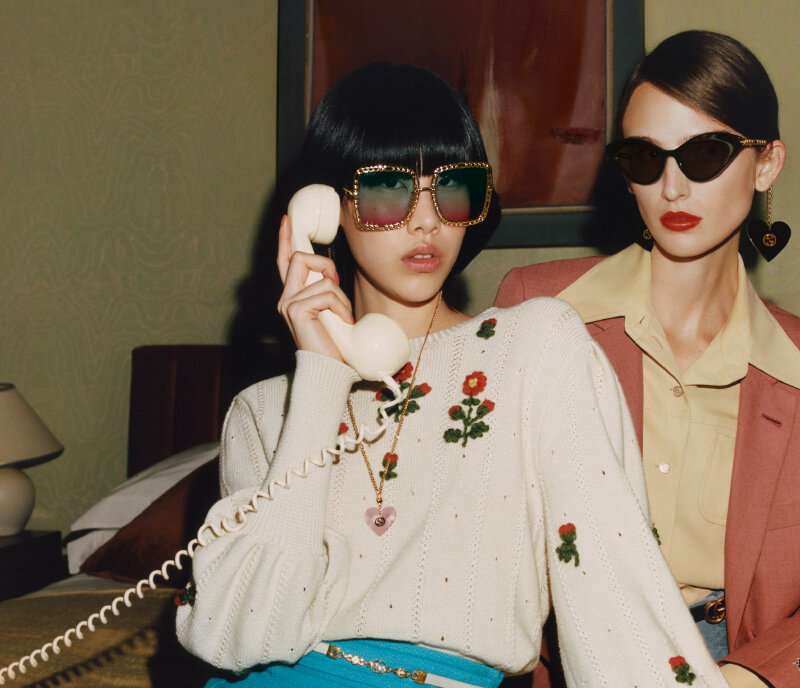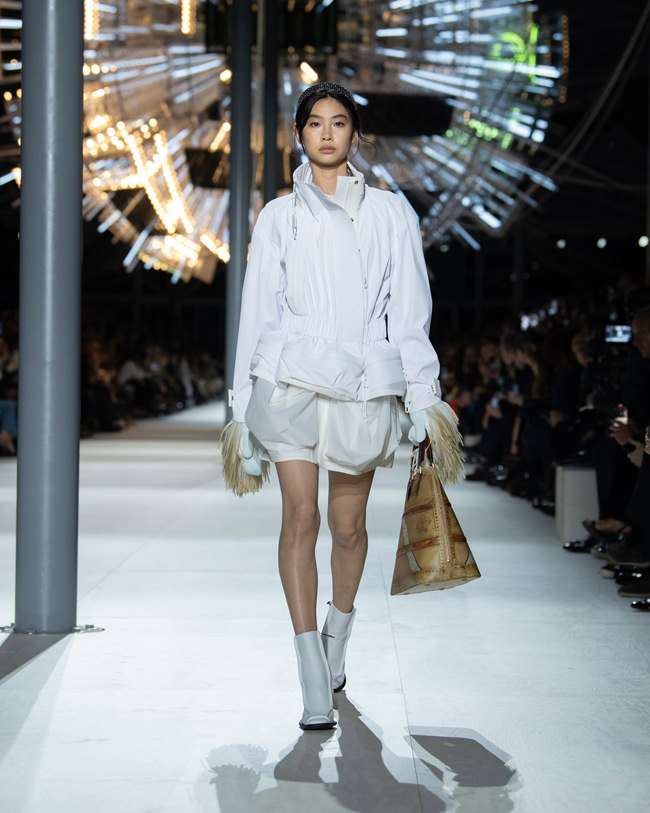Is the luxury sector still supporting suppliers accused of modern slavery? That may just be the case, according to recent data.
Globally, around 50 million people are living in modern slavery conditions right now, research suggests. For context, that’s around 30 million more people than the populations of New York, London, and Paris combined. Several industries are responsible for driving up modern slavery numbers. In the fashion world, fast fashion, quite rightly, is usually in the hot seat over exploitation allegations. But right now, the luxury fashion sector is also under fire for its lack of action on weeding out modern slavery in its supply chains.
The garment industry has long been linked with worker exploitation. Around one-fifth of the world’s cotton comes from Xinjiang, China, for example, where multiple reports indicate forced labor is present throughout cotton production. Bangladesh, Vietnam, Pakistan, and Turkey — all known for their garment industries — have also been named by the U.S. Department of Labor as places of concern in terms of forced labor. This means that people across the fashion industry are being forced to work long hours, with no social benefits and very little rest time, for little or no pay at all. All for an industry that is worth around $2 trillion. Yes, that says trillion.

One recent report from KnowTheChain and The Business and Human Rights Resource Centre (BHRRC) calls out LVMH — the parent company of renowned names like Givenchy, Louis Vuitton, and Fendi — specifically for a lack of action over modern slavery. The center looked at 65 companies across the fashion industry and scored their efforts in 12 different categories, including supply chain transparency, responsible recruitment, and management and accountability, out of 100.
LVMH scored just six out of 100, while Italian luxury label Salvatore Ferragamo scored four. “The fashion industry has long since been in the media spotlight for its endemic human rights risks and labor abuse scandals,” Aine Clarke, head of KnowTheChain and investor strategy at BHRRC, said in a recent interview. “Despite this, most companies are not adapting to the scale and scope of these issues across global supply chains.” The companies that scored the highest in the report, hitting over 50 marks, included Adidas, Lululemon, and Puma.
Why are fashion brands still relying on forced labor?
According to Clarke, part of the problem is that luxury fashion brands are simply not adapting fast enough—or just not adapting at all — to a rapidly changing world.
“Exacerbated by multiple crises in 2023 — including climate breakdown, international conflict and post-pandemic realignment – alongside an increase in strategic litigation, legislation and associated operational, reputational and financial risks, makes this ‘business-as-usual’ approach by so many brands short-sighted and misguided,” she said.
In other words, it seems that they’re just not trying hard enough to resolve the human rights abuses in their supply chains. They are not, however, seemingly struggling to prioritize profit. LVMH just announced that 2023 was a record year for the company, with a recorded revenue of more than $93 billion in 2023.
BHRRC is not the first to call out luxury brands for their lack of action on human rights. In 2023, Fashion Revolution released its eighth Fashion Transparency Index, which aims to shine a light on just how much information brands choose to disclose about their supply chains.
Some luxury brands scored highly. Gucci, for example, was one of the highest-rated brands on the index, coming in at 80 percent transparency for the first time. But multiple brands scored 10 percent or below, including Dolce & Gabbana (scoring 2 percent) and Tom Ford (scoring 0 percent).

Overall, the results on wage and worker transparency were disappointing. “An abysmal one percent of major fashion brands tell us the number of workers in their supply chains being paid a living wage,” noted Fashion Revolution. “It is impossible for companies to make sure human rights are respected, working conditions are safe, and the environment is protected without knowing where their products are being made,” the initiative continued.
Walk Free is another organization calling for more urgent action from the luxury fashion sector. The international human rights group, which is based in Australia, regularly updates its Global Slavery Index to show the world how the products we buy every day impact people around the world. According to the organization, in 2021, G20 countries spent nearly $148 billion on garments that were at risk of being produced with modern slavery.
Brands need to accept, and take urgent steps to change, that “exploitation is the industry standard,” Walk Free’s founding director Grace Forrest told Vogue Business last year. But governments need to step up, too, she explained, and enforce more regulations around supply chain transparency, labor inspections, and wage requirements. They should also ban the import of goods associated with forced labor. But government processes take time, and human beings need action now. “You’ve got a tiny, tiny window to be on the right side of history,” Forrest added, referring to the fashion industry as a whole.
Across all of these reports, the conclusion is similar. Fashion needs to step it up, no excuses. “While the largest apparel companies have experienced staggering revenue growth and profit margins since the pandemic, those who work for them continue to face some of the most impoverished conditions,” said Clarke.
Related on Ethos:


